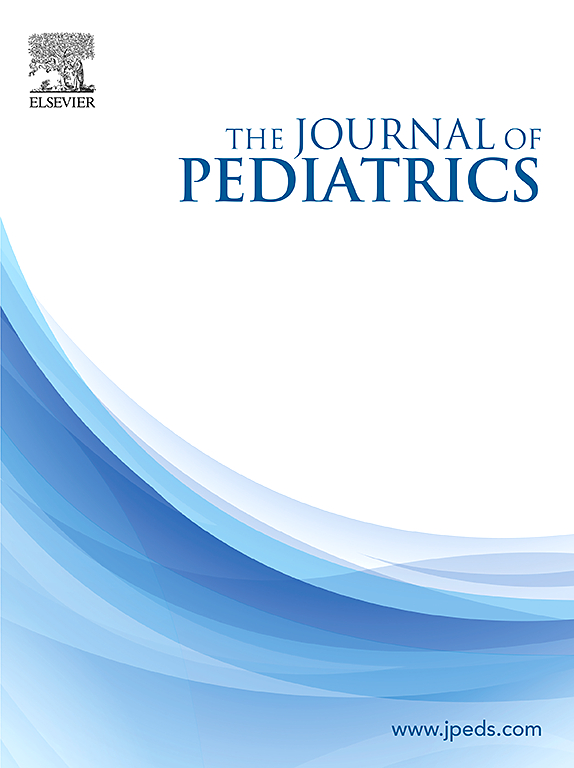Are Early, Frequent Echocardiograms Necessary to Improve Outcomes of Neonates with Congenital Diaphragmatic Hernia?
IF 3.9
2区 医学
Q1 PEDIATRICS
引用次数: 0
Abstract
Objective
To determine if timing of first postnatal echocardiogram (ECHO), early vs delayed, affects the use of extracorporeal membrane oxygenation (ECMO) and survival to discharge in neonates with congenital diaphragmatic hernia (CDH).
Study design
We retrospectively reviewed 306 neonates with CDH managed between January 2007 through December 2023. We excluded 21 neonates diagnosed at >24 hours age and 14 outborn neonates transferred at >12 hours age. Based on initial ECHO guideline recommendation changes, we compared 2 ECHO cohorts: early (<24 hours, 2007-2015) vs delayed (>24 hours, 2016-2023). Outcomes of interest included ECMO use, survival, rates of cardiopulmonary therapies, and key ECHO parameters.
Results
The median age for first preoperative ECHO was 7 hours (IQR, 4-13 hours) in the early epoch vs 40 hours (IQR, 19-62 hours) in the delayed epoch (P < .001). Despite similar demographics including gestation, birth weight, defect size, and intrathoracic liver, ECMO use (31% vs 9%) and survival (70% vs 82%) were improved significantly in association with delayed timing of first ECHO (P < .05). Measures of pulmonary hypertension, ventricular size, and ventricular function were similar, but significantly less inhaled nitrous oxide and vasoactive drugs were used in the delayed ECHO epoch.
Conclusions
A delay in the timing of the initial postnatal ECHO for critically ill neonates with CDH, as part of a broader series of guideline changes, was associated with less ECMO, improved survival, and lower use of inhaled nitrous oxide and vasoactive drugs despite similar ECHO measures of pulmonary hypertension, ventricular size, and ventricular function. Randomized studies are needed to define better the optimal timing and interventions related to the initial ECHO for CDH.
求助全文
约1分钟内获得全文
求助全文
来源期刊

Journal of Pediatrics
医学-小儿科
CiteScore
6.00
自引率
2.00%
发文量
696
审稿时长
31 days
期刊介绍:
The Journal of Pediatrics is an international peer-reviewed journal that advances pediatric research and serves as a practical guide for pediatricians who manage health and diagnose and treat disorders in infants, children, and adolescents. The Journal publishes original work based on standards of excellence and expert review. The Journal seeks to publish high quality original articles that are immediately applicable to practice (basic science, translational research, evidence-based medicine), brief clinical and laboratory case reports, medical progress, expert commentary, grand rounds, insightful editorials, “classic” physical examinations, and novel insights into clinical and academic pediatric medicine related to every aspect of child health. Published monthly since 1932, The Journal of Pediatrics continues to promote the latest developments in pediatric medicine, child health, policy, and advocacy.
Topics covered in The Journal of Pediatrics include, but are not limited to:
General Pediatrics
Pediatric Subspecialties
Adolescent Medicine
Allergy and Immunology
Cardiology
Critical Care Medicine
Developmental-Behavioral Medicine
Endocrinology
Gastroenterology
Hematology-Oncology
Infectious Diseases
Neonatal-Perinatal Medicine
Nephrology
Neurology
Emergency Medicine
Pulmonology
Rheumatology
Genetics
Ethics
Health Service Research
Pediatric Hospitalist Medicine.
 求助内容:
求助内容: 应助结果提醒方式:
应助结果提醒方式:


